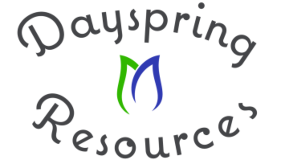Essential Knowledge
Knowledgebase
- Probate Code
- Statutes of Limitations
- Privacy Protections on Probate Cases
- IRS Involvement in Probate Proceedings
- Medicare-MEDICAID Paydown of Assets
Summit
Learn from interviews with fourteen generous-spirited people who’ve been through various aspects of the elder care experience who offer their knowledge. They come from all walks of life—from the law to brokerage, to counseling and publishing and elder advocacy. They tell you, frankly, what worked and what didn’t work for them, so you don’t have to reinvent the wheel.
10 Video Interviews
Part I—Caring for Loved Ones at a Distance
Jenna Viscaya, psychotherapist, shows you how she coped while working, for a decade, as a court-appointed family guardian, to care for a father who lived a thousand miles away, and what she wishes she’d done differently.
Sherri Burr, now Professor Emerita of Law at the University of New Mexico, explains how she dealt with the many challenges posed by her out-of-state brother’s devastating heart attack, and the years after that when she stepped up and assumed total responsibility for his welfare. Did her status as an attorney affect the outcome? Listen and find out.
Part II—Housing and Physical Needs
Linda MacDougall—senior care advocate extraordinaire—shows you how sometimes simple hacks (and a dose of common sense) can greatly improve both the safety and the quality of life for older people. She filters this information through her years of personal and professional experience with elders living on their own as well as in institutions.
James Lee is the survivor of a family journey in which he gained personal experience with eldercare. Now he’s a podcaster for reformers within the elder care industry and works on designing innovative methods that make it safer for elders who wish to remain in their own homes to do so.
Part III—Financial Matters
Bett Darken, who held licenses in the area of insurances and investment, made it his mission to help others after his family experienced financial devastation in probate court. He now teaches people about identifying and preventing similar problems.
Part IV—Avoiding Legal Troubles (Family Relations)
Randy Rolfe, best-selling author, former attorney and now a counselor, suggests ways of alternate dispute resolution before anyone thinks about going to court.
Part V—Organizations That Pick Up the Pieces: Families as Collateral Damage
Rick Black has spent the years since 2013 helping over 4000 others cope with the painful consequences of what he describes as our dysfunctional court-administered guardianship system.
Part VI—The Media: Tips for Dealing with the Media
Diane Dimond—broadcast and print investigative journalist—offers you guidelines on how to work with the media if you can’t get satisfaction through the courts.
Part VII—Legal Intervention: When Attorneys and the Courts are Needed
James Dory, attorney, tries to keep estate cases out of probate court. He is not looking for new clients (he does say this during his video, too); he is simply trying to offer help and hope to others.
Alexandra Snyder, CEO of the Life Legal Defense Foundation, only handles cases where a vulnerable person’s life is in danger. Sometimes, institutions and commercial guardians (and even family guardians) withhold food or water or medical treatment. Is this happening to your loved one?
4 Downloadable Audio Interviews
Part I: Caring for Loved Ones at a Distance
Jacqui Ryan, credentialed as a real estate agent, advocates for checking carefully—and regularly—on the fitness of home care aides (how she came to believe this should be mandatory will likely shock you)
Brad Thompson, American expatriate, explains how he managed to care for his aging mother, while continuing to manage a publishing house and live (most of that time) in London.
Part III: Financial Matters
Erik Gallegos, an investment advisor with a master’s degree in international finance, explains some of the basic reasons why most people’s aging loved ones (if they’re over 65) either are now—or soon will be—broke.
Part V: Organizations That Pick Up the Pieces: Families as Collateral Damage
Marcia Southwick, a prizewinning poet, turned “elder rights activist” after seeing what happened to a close friend enmeshed in the commercial guardianship system. She lets you re-experience her journey with her.
